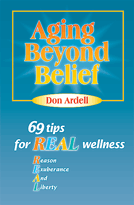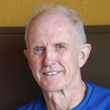The rise of celebrity chefs and food programs has been phenomenal. True, there are some excellent shows that feature healthy cuisines, and more wellness-oriented content. However the alarming trend has been for more and more shows to do what television shows have learned works for ratings: to shock and to “give the public what they want.” I’m talking gluttony and foods that have been scientifically linked over and over again to the obesity and health crisis we see in America and ever-increasingly, worldwide.
Americans watch an average of Four Hours of Television Per Day. (http://www.csun.edu/science/health/docs/tv&health.html) This media-saturated culture allows television celebrities easy access to our awareness and affects our lifestyle decisions more than we think.
We see food programs, often posing as travel shows, glorify over-eating to a degree that is all about shock value. We tune in to programs that seem to inevitably feature consuming the most disgusting substances the host can find. Far too many programs show the host seeking out and gorging on huge quantities of the fattiest red-meat items available. Or, we indulge in a convenient fantasy that “good old home cooking” with all the butter and gravy possible won’t really hurt us. Cholesterol, calories, salt and fat content be damned! Full speed ahead!
We WANT to believe that we can eat like those folks on television and get away with it. The identification with some of these television chefs has been astonishing. What we forget is that they often become more of a corporate “brand” than a person. They represent the tip of a business iceberg that at times becomes a juggernaut of capitalistic power. When that happens it’s not about your health, it’s about making money.
Paula Deen, the television chef who made millions pushing traditional Southern cooking with a style of over-indulgent exaggeration, became “The Girl Who Kicked The Hornet’s Nest” recently when she announced that she has come down with Type Two Diabetes. While deserving of all the compassion we would give anyone who encounters this challenge in their life, Paula lost much of such potential support by only revealing her affliction three years after her diagnosis. In the meantime she had continued to push her “brand” and all of the diabetes-engendering recipes that went with it. She also never revealed her diabetes until she had a mult-million dollar contract in place to be a spokesperson for a diabetes drug company. (http://www.huffingtonpost.com/2012/01/23/paula-deen-diabetes-announcement-celebrity-chefs-support_n_1224454.html)
When we give our power away to entertainers who may or may not have our health and best interests at heart, we lose. We often feel betrayed when some truth finally comes to the surface, whether it’s about them, or when we suffer consequences in our own health.
It’s really like reading labels. What is the real content of this product? I loved hearing Marion Nestle (no relation to the food company) (http://www.foodpolitics.com/) talk about nutrition and the food industry at The National Wellness Conference (http://www.nationalwellness.org/index.php?id_tier=90) one year. She made it clear that the big food companies are not evil, they’re not out to get us. They simply are out to make money and are really very neutral about our health. If we purchase junk, they will make and market more junk. If we purchase more healthy food, they will, as we have seen, make and market more healthy food. The same is true for TV.
I’m not out to change TV. I’m out to help people reclaim their own lives. Read the label, so to speak, on what you watch on television. Remember that your favorite celebrity may simply be putting on an infomercial and calling it a TV show. Watch consciously and be conscious of how much you watch. We can’t always trust the intention behind a show. It’s like finding a good looking website on nutrition and then digging deeper and finding out that it’s just a propaganda voice for a coalition of food industry vested interests. The charge of all of these shows is to entertain first and foremost. That’s why we find them fun and interesting. What’s wonderful is when they share recipes that are actually heart-healthy, cancer-preventing, and diabetes-preventing.
We would love to feel like celebrities are our “friends”. We all want to be connected to others. We enjoy their entertainment and we sometimes aspire to be more like them, for better or for worse. Celebrities are real people and the few I’ve met personally, like John Denver and Dennis Weaver, were as sincere and genuine as it gets. However, let’s not make them lifestyle beacons for us or give them authority they don’t deserve. It’s like a time way back in the late 1960’s when I noticed a friend of mine hanging on every word of a rock band for philosophical and political guidance. No wonder The Moody Blues put out a tune at that time entitled “I’m Just A Singer In A Rock n’ Roll Band.” (http://www.youtube.com/watch?v=RqOSzkqPhbA)
Wellness Self-Quiz:
1. Have you found television food shows that emphasize wellness and healthy eating? Please share.
2. Have you found yourself recently shifting your eating habits to include more (not less) red meat dishes, more fried foods, more higher-fat content items after seeing such trends on show you watch?
3. What is one thing you can do to be a more conscious consumer of food programs on television?
-Shared from Michael Arloski’s blog, Real Balance Wellness.
Books by Michael Arloski:
Wellness Coaching for Lasting Lifestyle Change
Your Journey to a Healthier Life


